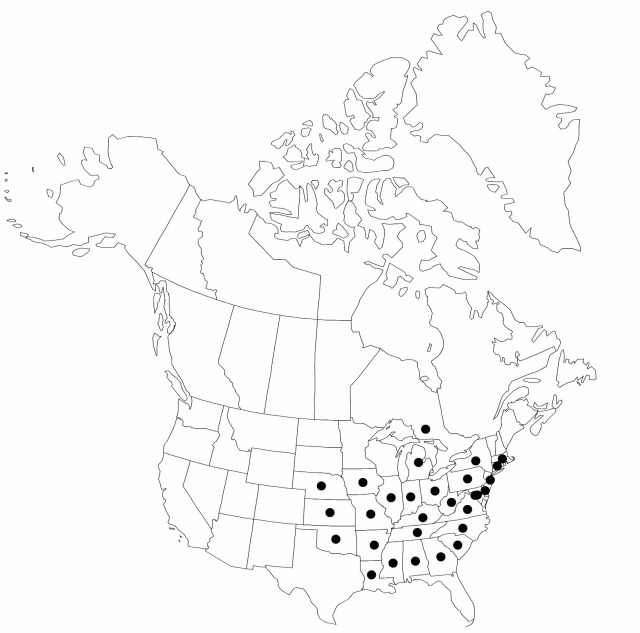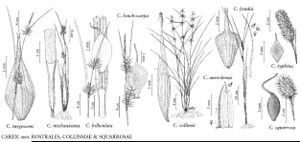Carex squarrosa
Sp. Pl. 2: 973. 1753.
Plants cespitose, short-rhizomatous. Culms 30–80 cm. Leaves 3–5.7 mm wide, glabrous. Spikes 1–2(–3), erect; lateral spikes, if present, usually pistillate; terminal spike gynecandrous; staminate portion 5–18 × 1–3.5 mm; pistillate portion ovate or oblong, 11–35 × 12–20 mm. Pistillate scales 3–4.5 × 0.5–1.1 mm, apex sharply acute or with short, scabrous awn, hidden by perigynia. Staminate scales 3.5–7.1 × 1–2 mm, apex acute, sharp or blunt. Perigynia widely radiating, the proximal reflexed, 5.8–9.7 × 1.9–3.3 mm, smooth; beak 2.1–3.8 mm, usually smooth. Achenes sides often flat, 2.3–3 × 1.1–1.4 mm, 1.9–2.5 times as long as wide; style persistent, sinuous. 2n = 56.
Phenology: Fruiting summer.
Habitat: Wet woods, forest edges, meadows
Elevation: 0–1000 m
Distribution

Ont., Ala., Ark., Conn., Del., D.C., Ga., Ill., Ind., Iowa, Kans., Ky., La., Md., Mass., Mich., Miss., Mo., Nebr., N.J., N.Y., N.C., Ohio, Okla., Pa., S.C., Tenn., Va., W.Va.
Discussion
Carex squarrosa and C. typhina are sympatric over much of the northern part of their ranges and occur in similar habitats. Some evidence suggests, however, that C. squarrosa occurs in slightly drier habitats than C. typhina.
Selected References
None.
